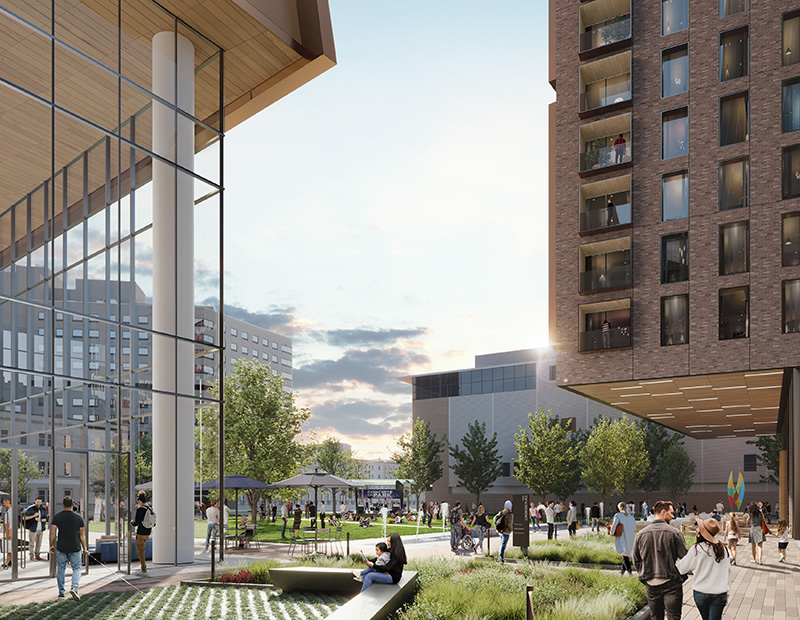A rendering of the completed Longwood Place. Image courtesy of Skanska
Skanska has signed a deal to develop an approximately 398,000-square-foot research center for Simmons University. The contract to build the new Living and Learning Center, situated in the Longwood Medical area of Boston, is worth $311 million.
Simmons—which serves women undergraduates and offers graduate programs open to all students—has been planning the One Simmons project for decades as part of an effort to consolidate its facilities onto a single campus. The Skanska project is the final phase of the mission.
The Living and Learning Center will feature a 1,000-bed student residence, coworking spaces, social spaces, office support spaces and a dining facility. Amenities in the project’s fitness facility are set to include a pool, gym, weight room and rowing tanks.
The development’s anticipated delivery is in September of 2026, following a construction start in May of this year. Upon completion of the Living and Learning Center, Skanska will begin developing the Longwood Place.
Future site plans

A rendering of Longwood Place’s outdoor area. Image courtesy of Skanska
Longwood Place, another mixed-use development at the site of Simmons University’s residential campus, received approval from the Boston Zoning Commission on March 29. Designed by Sasaki, the development will be a mixed-use gateway to the Longwood Medical Area.
As part of the development, five buildings will be completed totaling 1.7 million square feet. Office, laboratory, retail and residential spaces are anticipated to be developed, alongside 2.6 acres of public open space. Additionally, more than 44,000 square feet of ground-floor retail will be built.
Situated at 305 Brooklyn Ave., the North Boston office and retail-oriented buildings are anticipated to range from 424,000 square feet to 622,000 square feet, CommercialEdge data shows.
Boston’s booming office space
The Skanska developments add to the many mixed-use and office projects currently underway in the Boston market. According to a recent CommercialEdge report, the area held the largest under-construction office supply in the nation as of January, backed by a strong university presence and increasing demand for life science research and office space.
As of January, life science buildings in Boston totaled 13.7 percent of the city’s total inventory. More than half of the office space being constructed during the same month was for lab space. In the near future, demand for life science and office space in the area is anticipated to remain strong.
















